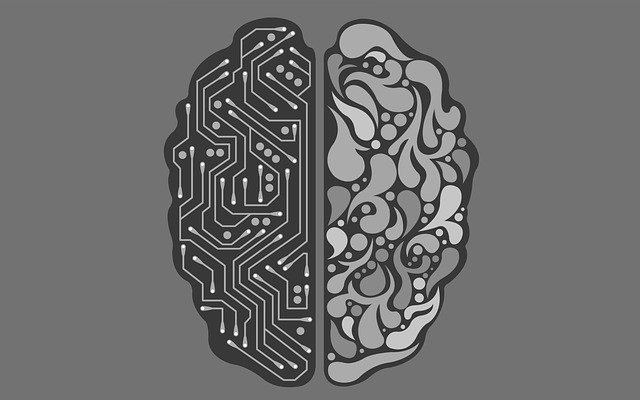Whether you are accessing
the Internet from home, office, anywhere, there is a chance that some intruder
can peek into your data that you are sending. In that case, your privacy is
completely dependent on the mercy of the application you are using. If it uses
any kind of encryption, then your data is somewhat safe. But still, it is
trackable. So, simply encryption of data can’t make you untrackable. Any third
party can always keep an eye on your data surfing. A Virtual Private Network
(VPN) lets you surf anonymously, which makes you sort of untrackable through
the Web. In this article, let see how this technology works?
Where it is used?
First of all, a VPN can be
used for PCs, laptops, smartphones, servers, i.e any kind of computing platform. The primary need for such technology came
to form corporate offices. When a branch office access data from the main
office server through the internet, it always is a risky job to perform. Any
time, their data can be tracked and without encryption, it is easy to crack
also. Now, everybody is working from their home due to the spread of the
‘COVID-19’ (link). Accessing the office’s server from a personal network is not
suitable. Imagine the scenario, when every employee is accessing data through
their private network, it is a condition similar to a pond full of fish and for
a fisherman, it is very easy to catch fishers. A third person can track
every employee's activity very easily. So, using a VPN is a must in this case.
Other application
includes,
Overcoming banns and
restrictions on data serving over a geological area, network, etc. In many
cases, it has been observed that certain websites are not allowed to visit from
a certain network. The network authority imposes several kinds of bans over
some websites. VPN lets users overcome the bans and serve the banned websites
while staying that network. The article doesn’t encourage anyone to do so.
On the other hand, some
e-commerce websites track their user by using IP addresses to recommend
products according to their search activities over the internet. Which
sometimes can be verified in online advertisements. In that case, a VPN can be
a helping hand to avoid such tracking.
Using a VPN while surfing
the web by using public Wi-Fi is a lifesaver.
How does It work?
To know that we have to
know what an IP address is? It is an address assigned by a network server while
using it within a network. It is synonymous to a roll no assigned to a
university student, no two students have the same roll no., similarly, within a
network, no two communicating devices have the same IP address. So, by tracking
the IP address used by a user, a third party can easily track online
activities. Hackers can break into networks and sometimes take over devices
through its IP address.
When we try to access a
website, the network server (the Router, if using Wi-Fi) sends the data to a
nearby network that is nearer to the destination sites. Each time the data is
redirected to a new network until it reaches the destination website’s server.
Each time the data changes a network with changing network, its IP address changes. By simply
following the IP footprint one can track a user. The most terrible thing is
such tracking tools are available freely on the internet.
VPN is a virtual private
network that is created by some special servers (owned by the VPN service provider)
spread globally. The VPN service provider takes your data only through those
special servers until it reaches the destination address. These special servers
are created for only this purpose and they work in a secure environment. So, a
third person cannot just search for an IP footprint, they don’t allow. For a
user, as if the data is traversing through a private network.
Sometimes, the VPN service provider offers some sort of encryption to the data, which in turn
increases the security of the data. Note: all the IP addresses are hypothetical and used to explain concepts.
Which is the best VPN service?
Well, this article is
just to let the user know about the advantages of using a VPN. There are many
VPN service providers out there to choose form. Also, it is not an advertisement
for any specific VPN service provider, so taking a name is not a good idea.
Well, I have got an approach to judge which VPN service is good for you.
There is a website that
tells what is your IP address currently. First, without any VPN you go here
(link), it will show your public IP address, ISP (link), and location. You
might see the following picture (sensitive information is removed).
Second, log in your account
by using credentials provided by the VPN service provider,& turn on VPN service
on your device, go back to (link) & check whether the public IP address,
ISP (link), and location are showing the same or not?
If it is different, then VPN is working properly, and by a third party, your data is not trackable.
If it is different, then VPN is working properly, and by a third party, your data is not trackable.
One thing that must be
for sure that, ‘free VPN’ services won’t work effectively. It is similar to
protecting ourselves from a bullet by a normal glass shielding. Paid services
take responsibility for your data. After all, maintaining such a network of
globally connected servers takes lots of financial & manpower
resources.
Conclusion:
We have seen how
vulnerable our data is on the internet, how anyone can track our online
activity easily. Also, it was shown how a VPN service works, how to check your
VPN is working or not? Last but not least, free vpn doesn’t work generally!
In conclusion, it is absolutely suggestable that, if you are working from home
and you need to access official data, you must use a VPN. Nowadays, government
and private enterprises purchase VPN services and provide credentials to their
employees. If you have one, well and good; if you don’t have one, ask your IT
team to arrange it for you.









1 Comments
Check out 21 VPN for PC
ReplyDeleteAll non-spamy comments will be visible